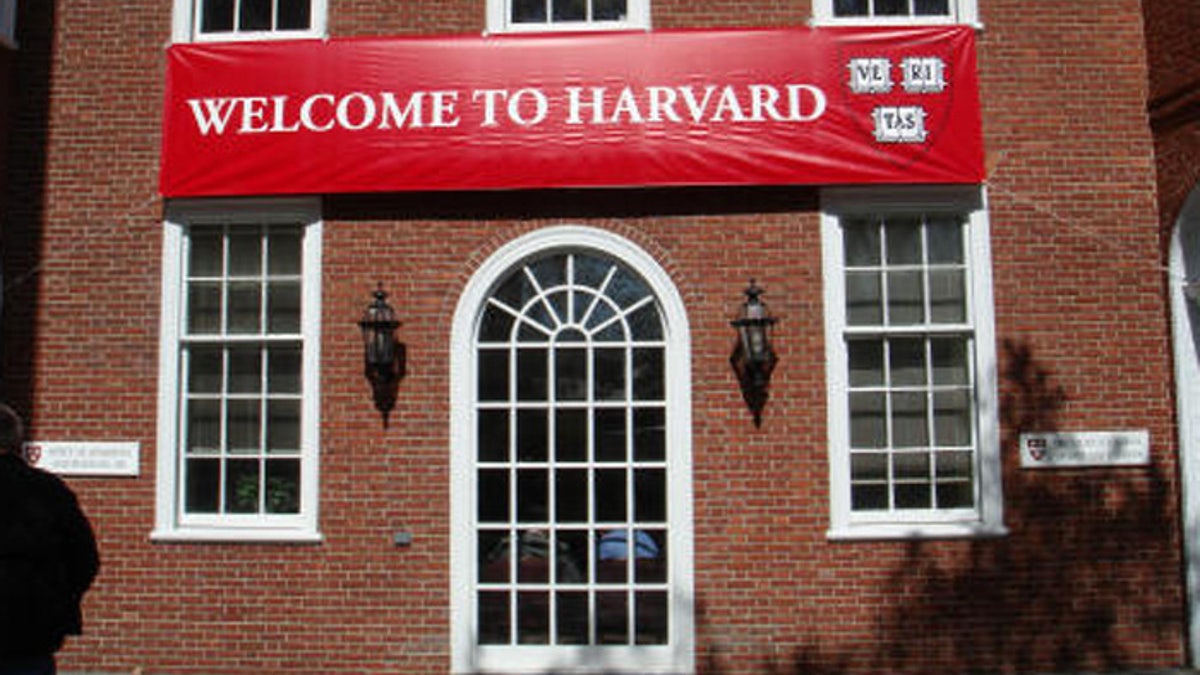
FILE -- Harvard University
Harvard University's affirmative action policies, which the school says are aimed at achieving diversity on the vaunted campus of Cambridge, discriminate against Asians who often can't get in despite having higher test scores and grade-point averages than black and Hispanic students who are accepted, according to a lawsuit filed Monday.
Edward Blum, who runs the Project on Fair Representation, which filed the suit on behalf of Asian students who were rejected by the school, said it is a clear case of favoring certain racial groups over others.
“Quotas and racial balancing are strictly against the law,” said Blum, whose group sued the University of Texas on behalf of a white applicant over its affirmative action admissions policies in a case that went to the U.S. Supreme Court last year.
In the Texas case, the high court reversed a lower court's ruling in that case and remanded it with orders to apply the standard of strict scrutiny to the school's race-conscious admissions policy. That decision is pending, but the Harvard case is different because it focuses on affirmative action’s negative impact on a minority group.
[pullquote]
The lawsuit cites a 2009 study by Princeton sociologists that concluded that while the average Asian American applicant needed a much higher 1460 SAT score to be admitted, a white student with similar GPA and other qualifications only needed a score of 1320, while blacks needed 1010 and Hispanics 1190.
The scores reflect the fact that Asians as a whole score higher than any other group on the SAT, so if a college wanted to avoid having a disproportionately high number of Asian enrollees, it might have to hold them to a higher standard.
The student plaintiffs remain anonymous, but the lawsuit notes that their qualifications were above average and yet they were rejected. The group is looking for additional student plaintiffs on their website, and has also filed suit against UNC Chapel Hill for discriminating against both whites and Asians.
Harvard defended its admissions policy in an e-mailed statement to FoxNews.com.
“The College considers each applicant through an individualized, holistic review having the goal of creating a vibrant academic community that exposes students to a wide-range of differences: background, ideas, experiences, talents and aspirations,” wrote Robert Iuliano, Harvard's general counsel.
He added that the policy is legal.
“The University’s admissions processes remain fully compliant with all legal requirements and are essential to the pedagogical objectives that underlie Harvard’s educational mission,” he wrote.
Others also defended the university’s diversity policy.
“Asian-American students benefit greatly from attending the racially and socio-economically diverse campuses that affirmative action helps create,” Julie Park, assistant professor of education at the University of Maryland and author of the book “When Diversity Drops,” told FoxNews.com.
But others think the policy is harmful.
“The plaintiffs present considerable evidence suggesting that Harvard discriminates against Asian American applicants,” Richard Kahlenberg, a consultant for the plaintiffs who studies education policy at the Century Foundation, told FoxNews.com.
One piece of evidence is the advice that the Princeton Review, a popular college guide, gives to Asian students applying to elite schools.
“The Princeton Review… explains: ‘Don’t attach a photograph to your application and don’t answer the optional question about your ethnic background… Write about something entirely unrelated to your ethnic background,’” the lawsuit notes.
Kahlenberg added that rather than directly targeting race, universities should give a leg up only to students who come from poorer backgrounds.
“Harvard has as many students in the freshman class from families in the top 1 percent by income nationally as from the bottom 50 percent," he said. "It could produce considerable racial and ethnic diversity without resorting to racial preferences.”
As a legal matter, Harvard’s lawyer noted that a previous Supreme Court ruling from 1978 held Harvard’s policy as not only legal, but as a model for creating racial diversity without explicit quotas.
The plaintiffs hope that the Supreme Court has changed its mind over the decades.
“Harvard is not in compliance with the new “strict scrutiny” standards articulated in 2013 by the U.S. Supreme Court in Fisher v. University of Texas at Austin. The Fisher opinion unambiguously requires schools to implement race-neutral means to achieve student body diversity before turning to racial classifications and preferences,” the plaintiffs noted.
“The university is engaging in a campaign of invidious discrimination.”
The author, Maxim Lott, can be reached at @maximlott or maxim.lott@foxnews.com

